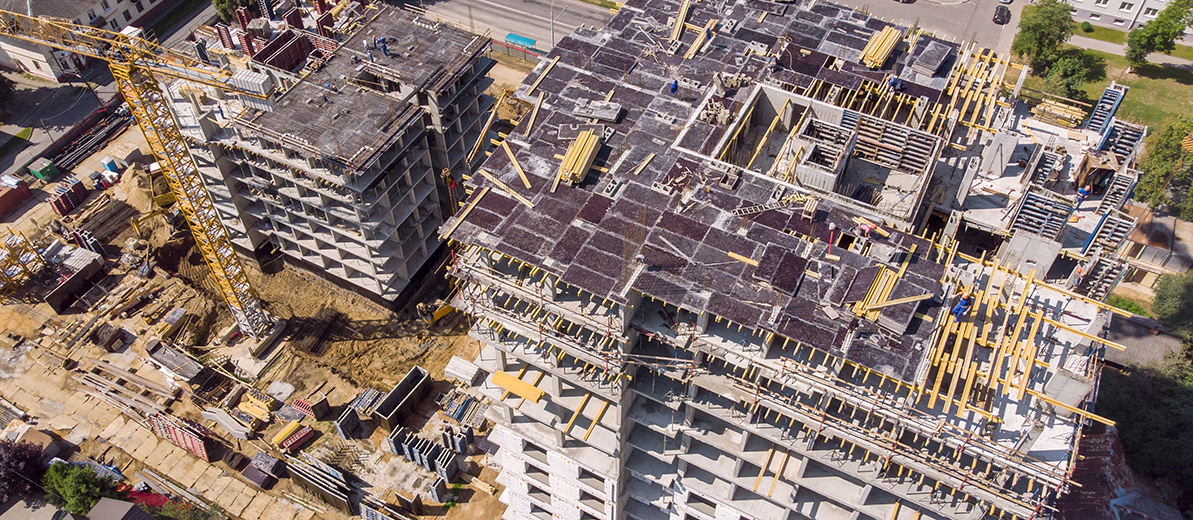
May 1, 2023
Excusable, Non-compensable Delays
Excusable, non-compensable delays in construction, such as most delays caused by unusual weather and strikes, entitle the contractor to time extensions but not damages. Excusable delays are important to a contractor facing liquidated damages.
Delays caused by unanticipated outside events are excusable under the terms of most contracts. Neither the contractor nor the owner is responsible for an excusable, non-compensable delay. The contractor is not entitled to delay compensation from the owner because no breach of contract is involved but is entitled to a time extension if the contract so provides.1 Excusable, non-compensable delays often fall into the following categories.
Weather
Bad weather can cause an excusable delay in construction, but only if it is unusually severe. Unusually severe weather is “adverse weather which at the time of year in which it occurred is unusual for the place in which it occurred.” Unusual severity may be shown by comparing previous years’ weather with the weather that the contractor experienced.2 Harsh or destructive weather is usually not sufficient if the contractor could reasonably have anticipated it at the time and place it occurred.
The A201 General Conditions require a contractor making a claim for extra time due to weather delays to submit data “substantiating that weather conditions were abnormal for the period of time and could not have been reasonably anticipated.”3 Some bad weather is always to be expected.4 If the contract period is 400 days, the contractor obviously does not have a right to expect 400 dry, sunny days with all subcontractors working at full force.5
Under most contracts, delays caused by “Acts of God,” such as floods, hurricanes, tornadoes, or earthquakes, are excusable, entitling the contractor to a time extension. However, usually neither party is obligated to the other for costs resulting solely from “Acts of God.”6
Labor Problems
Similarly, delays resulting from most, but not all, strikes and labor disturbances are generally excusable. If the strike is in effect or anticipated at the time of contracting, then because the labor problems were foreseeable, the contractor should have made a provision for them in the contract and their effect on its schedule.7 If a strike is provoked by the contractor’s unfair labor practice, it may not be excusable, because a delay so generated is not due to a “cause beyond the contractor’s control.”
With some exceptions, delays resulting from labor shortages not caused by labor disputes are usually not excused. For example, if labor shortages are caused by competition for labor with other projects in the area about which the contractor was aware at the time it entered into its contract, then such labor shortages may be seen as foreseeable and may not provide entitlement to a time extension. Similarly, a contractor typically does not receive a time extension for subcontractor or supplier delays, because the contractor generally assumes responsibility for their actions.8
Acts of the Government
Delays caused by wartime or other emergency restrictions, priority allocations, supervening legislation, or other regulation are excusable.9 Such delays have been excused even when they were foreseeable.10
A court order that prevents timely performance is likewise a government act that excuses resulting delays.11 In City of Valdez v. Valdez Development Co.,12 the court held that a federal injunction on construction of the Trans Alaska pipeline excused a housing developer’s delay in completion of housing. The court noted that at the time the developer contracted with the City, commencement of construction on the pipeline was imminent, as was the need for additional housing to accommodate the workers. The subsequent injunction on pipeline construction destroyed the potential new market for housing and made it impossible to obtain financing for new housing. Hence, the injunction on pipeline construction was just as effective in preventing the housing developer from complying with its contract as it would have been if it had directly prohibited new housing construction.
Significantly, the Valdez trial court found that it was impossible to obtain financing. However, mere unanticipated difficulty in obtaining needed financing does not ordinarily excuse contract performance, even where attributable to governmental action.13
Other Excusable, Non-compensable Delays
Certain other circumstances have on occasion been held to cause excusable, but not compensable, delays. For example, unforeseen subsurface conditions may entitle a contractor to time extensions even where the delays and other additional costs occasioned thereby are not otherwise compensable.14 However, apart from these circumstances, few if any non-compensable delays are regarded as excusable in the absence of express contractual provision.
Delay caused by subcontractors and suppliers is commonly regarded as non-excusable. The duty to perform timely is non-delegable, and a prime contractor therefore assumes the risk of delays by its subcontractors15 and suppliers.16 The contractor normally has the right to recoup from its subcontractors or suppliers any owner-assessed damages as a result of their delays.17 However, the subcontractor’s or supplier’s delay is excused if it resulted from circumstances that, if encountered by the prime contractor itself, would excuse resulting delays. Insolvency or financial difficulty normally does not excuse delays unless the owner caused it.18
Effect
If a delay is excusable, and if notice requirements have been satisfied or otherwise waived, the contractor is entitled to a time extension to reflect such delay that was on the critical path at the time that the delay occurred and is relieved of liability to the owner for damages as a result of late completion.19 The primary value of such a time extension is that it prevents assessment of the owner’s actual or liquidated damages. When a project is completed late because of non-excusable delay, the contractor has, in theory, breached its contractual obligation. Under basic contract law principles, the contractor is liable to the owner for the owner’s damages resulting from this breach.
Notice
Even if a delay is excusable, the contractor may be responsible for the resulting costs if it does not give the owner the written notice of the delay required by many contracts. If a contractor fails to fulfill notice requirements and is not able to show that this formality has been otherwise satisfied or excused, i.e., constructive notice, it may lose any time extension entitlement for the delay and thus be liable for any resulting late completion.20 Contracts may require the contractor to provide notice as follows:
Notice Requirements: If Contractor receives any other directive, instruction, interpretation or determination from Owner which will cause a change in the Contractor’s cost or time to complete the Work, Contractor shall promptly (and in any event, within 5 days) notify Owner in writing, which notice shall describe the directive and the anticipated effect on the Contractor’s cost or time to complete the Work. Within 14 days after receipt of any such directive, Contractor shall submit to Owner in writing a more detailed statement of its claim that a change has been directed, including the estimated increase or decrease in Contractor’s cost to complete the Work as a result of such alleged change including all direct, indirect and impact costs on the unchanged Work, the estimated increase or decrease in the time required to achieve the Scheduled Mechanical Completion Date as a result of the alleged change, the estimated cost attributable to the increase in time and the estimated cost, if any, of recovering any time delay, and a description of what steps Contractor has taken and plans to take to minimize the effect that such alleged change will have on any increase in costs to complete the Work or any delay in the schedule. Contractor shall thereupon undertake to diligently pursue those steps and use its best efforts to mitigate any adverse effects caused by the alleged change.
In the event Contractor is entitled to an adjustment to the Contract Price as a result of any such directive, such adjustment shall be made in accordance with Article 9.1.2 of this Contract.
If written notice as required by this paragraph is not provided by Contractor within the aforementioned 5 days and 14 days, respectively, the alleged change for the purpose of this Agreement shall be deemed to have no effect upon the cost to complete the Work or upon the schedule, and Contractor will be deemed to have waived the right to any increase in the Contract Price or adjustment to the Scheduled Mechanical Completion Date.
1 For example, see Section 8.3.1 of the General Conditions of the Standard AIA Document A201 (1987 ed.).
2 Fortec Constructors v. United States, 8 Cl. Ct. 490, 504, 505, 507, 508 (1985) aff’d. 804 F.2d 141 (Fed. Cir. 1986).
3 AIA A201 Document § 4.3.8.2 (1987 ed).
4 Essential Constr. Co., ASBCA No. 18491, 78 2 BCA (CCH) ¶ 13,314 (1978).
5 DeSombre v. Bickel, 118 N.W.2d 868 (Wis. 1963).
6 Turnkey Enterprises Inc. v. United States, 597 F.2d 750 (220 Ct. C1. 1979).
7 United States v. Brooks-Calloway Co., 318 U.S. 120 (1943).
8 Fritz v. Woldenberg, 225 N.W. 700 (Wis. 1929).
9 See, e.g., United States v. Texas Constr. Co., 224 F.2d 289 (5th Cir.), cert. denied, 350 U.S. 895 (1955) (government restrictions); Village of Minneota v. Fairbanks, Morse & Co., 226 Minn. 1, 31 N.W.2d 920 (1948) (wartime restrictions); Collins Hotel Co. v. Collins, 4 Cal. App. 397, 88 P. 292 (1906) (change in city ordinance regarding hotel construction excused nonperformance).
10 Hajstrom Constr. Co., 61 1 BCA (CCH) ¶ 3090 (1961) (delays caused by priority allocations during Korean War excused, even though foreseeable).
11 See Kuhl v. School Dist. No. 76, 155 Neb. 357, 51 N.W.2d 746 (1952) (school district’s breach of teachers’ contracts excused by injunction prohibiting operation of school); Austin Square, Inc. v. City Products Corp., 24 Ohio App. 2d 158, 265 N.E.2d 322 (1970) (injunction on construction of shopping center excused lessor’s obligations to lessee).
12 City of Valdez v. Valdez Development Co., 523 P.2d 177 (Alaska 1974).
13 Ogdensburg Urban Renewal Agency v. Maroney, 42 App. Div. 2d 639, 345 N.Y.S.2d 169 (1973).
14 Carolina Spruce v. Black Mountain Wry., 139 Tenn. 137, 201 S.W. 154 (1918).
15 J. J. Brown Co. v. J. L. Simmons Co., 2 Ill. App. 2d 132, 118 N.E.2d 781 (1954); Fritz v. Woldenberg, 199 Wis. 99, 225 N.W. 700 (1929).
16 See, e.g., Hall v. Gargaro, 310 Mich. 693, 17 N.W.2d 795 (1945) (delays caused by unforeseen material shortages non-excusable). But see Succession of Pailet v. Acme Realty Co., 79 So. 2d 581 (La. Ct. App. 1955) (delay due to inability to obtain materials excused).
17 American Vitrified Products Co. v. Wyer, 221 F.2d 447 (6th Cir. 1955); Wieman Slechta Co. v. Pascoe Steel Corp., 351 F. Supp. 840 (D.N.D. 1972); Oliver Elec. Mfg. Co. v. I. O. Teigen Constr. Co., 177 F. Supp. 572 (D. Minn. 1959); M. Shapiro & Sons Constr. Co. v. Battaglia’s Estate, 138 Conn. 238, 83 A.2d 204 (1951).
18 Harvey Wipple v. United States, 342 F.2d 48 (1965).
19 Kaltoft v. Nelsen, 106 N.W.2d 597 (Iowa 1960).
20 See, e.g., Florida N. R. Co. v. Southern Supply Co., 112 Ga. 1, 37 S.E. 130 (1900); Austin-Griffith, Inc. v. Goldberg, 224 S.C. 372, 79 S.E.2d 447 (S.C. 1953).
ADDITIONAL RESOURCES

Blog
Discover industry insights on construction disputes and claims, project management, risk analysis, and more.
MORE

Articles
Articles by our engineering and construction claims experts cover topics ranging from acceleration to why claims occur.
MORE

Publications
We are committed to sharing industry knowledge through publication of our books and presentations.
MORE
RECOMMENDED READS
An Overview of Excusable Delays
This blog post discusses excusable delays in construction, including compensable and non-compensable delays.
READ
Types of Delay
Delays in construction contracts are usually categorized as one of three types. This post defines each type, with examples.
READ
Overview of Delays
Delay is a common yet complex type of claim. This blog post provides an overview of delays and begins a series of posts about them.
READ

